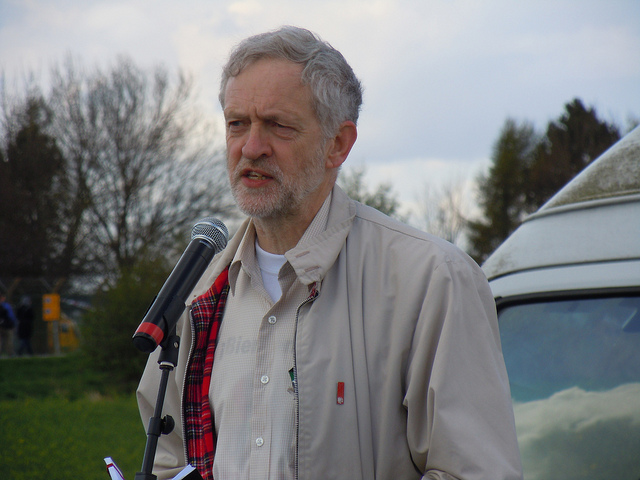new UK Labour leader reshuffles shadow cabinet, more women than men for the first time in history
The new leader of the UK Labour Party, Jeremy Corbyn, has announced Labour’s revamped shadow cabinet, which contains no women in the most senior positions but more women than men overall.
Corbyn was elected as Labour leader in a landslide victory last Saturday, with widespread support from Labour and union members. However, the party establishment appeared to be firmly against his election, warning that his left-wing views and reputation could alienate the voting public and be used by the Conservative Party to fear monger. After Corbyn was elected as leader, ten senior Labour MPs quit the front bench, leading to a cabinet reshuffle. In the past, the 66-year-old has defied party lines and voted against the Iraq war, was arrested in 1984 for protesting against apartheid, and has already sparked controversy as Labour leader for standing in silence during the UK national anthem at a memorial service for the Battle of Britain this week.
Although the most senior positions of the shadow cabinet such as Home and Foreign Secretaries were awarded to male MPs, Corbyn appointed more women than men for his shadow cabinet overall, the first time such a balance has occurred in history. Sixteen women and fifteen men make up the cabinet, with MP Heidi Alexander chosen as shadow Health Secretary and MP Lucy Powell given the shadow education portfolio. MPs Angela Eagle and Seema Malholtra were respectively made shadow Business Secretary and shadow Chief Secretary to the Treasury. And for the first time, the position of shadow Mental Health Secretary has been appointed, with Luciana Berger MP taking on the role.
Arguably, portfolios in areas such as education and health are considered to be more ‘feminine’ domains, and are often not seen as important as positions considered to be in traditionally masculine fields, such as foreign affairs. To be fair, a number of Labour’s top women, including leadership rivals Liz Kendall and Yvette Cooper, ruled themselves out of cabinet positions immediately following the announcement of the leadership winner.
In a statement, Corbyn argued that ‘the so-called “great offices of state” as defined in the 19th century reflect an era before women or workers even had the vote, and before Labour had radically changed the state,’ and considered the ‘real top jobs’ to be those looking after public services such as health and education.
Closer to home, with new Australian Prime Minister Malcolm Turnbull set to announce his reshuffled cabinet on Monday, many are waiting to see the number of women chosen for positions. Mr Turnbull assured the public that he was ‘very committed’ to ‘seeing more women in positions of power and influence in parliament.’
Former PM Tony Abbott was criticised for initially only having one woman in his cabinet out of twenty positions, appointing Julie Bishop as Foreign Minister. This was extended to two in a cabinet reshuffle in December 2014, when Sussan Ley was appointed as Health Minister.


